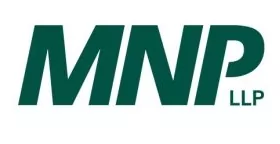I am quoted in the Globe and Mail on this topic.
It may not happen all the time, but every now and then a
governmental agency outperforms. As readers of my
June 4 blog know, The IRS promised a better Streamlined
Program. The Streamlined Program is a voluntary disclosure for
Americans who have not filed U.S. tax returns or reported their
foreign assets.
The IRS has received many Streamlined Program submissions. It doesn't have the manpower or budget to apply its risk assessment procedures to each of them, so many have sat unattended. It doesn't make sense for the IRS to spend a lot of money on these submissions, because there's rarely much tax involved, if any.
At the same time, practitioners and taxpayers have pleaded with the IRS to come up with a simpler, easier, better program.
The details were supposed to be out in the last week of June or the first week of July, but today, June 18, here they are. And overall, the changes are very good:
- The IRS is broadening the program so that more taxpayers will
be eligible.
- Previously, taxpayers had to have U.S. tax of under $1,500 per year. Because of a series of obscure U.S. tax rules (at least, they would be obscure to Americans living abroad), it was very easy for taxpayers abroad to fail this test. For example, Americans in Canada with mutual funds, family trusts, investment corporations or flow-through tax shelters could run afoul of this test.
- Now, all they have to do is certify that their failure to file was non-willful. Most Americans living abroad will be able to meet this test.
- Previously, the individual had to be resident outside the U.S. for all years since 2009.
- Under the new rules, a U.S. citizen or green card holder abroad
must meet the following two tests for only one of the previous
three years for which the return due date (including extensions)
has passed (for most people this means 2011-13):
- No U.S. abode
- The individual was physically present outside the United States for at least 330 full days during the year
- This rule yields a result I think was unintended. A US citizen who acts like a snowbird (spending over a month a year in the United States) is not eligible for the streamlined program.
- In a new twist, the program allows in non-Americans as well, so
long as there is one year in the past three for which they do not
meet the substantial presence test (SPT). An individual meets the
SPT if they are in the U.S. at least 30 days in the current year
and the following equals or exceeds 183:
- Days in the U.S. during the current year, plus
- 1/3 days in the U.S. during the prior year, plus
- 1/6 days in the U.S. during the second prior year.
- 122 days per year, for three years running, will cause an individual to meet this test.
- Taxpayers who have used "quiet disclosure" and not been audited are eligible.
- Estates of U.S. taxpayers are explicitly made eligible.
- Eligible taxpayers filing under this program have certainty that their penalties will be eliminated – the program now becomes an amnesty. The risk assessment that was part of the previous program is eliminated (not just for new filers, but for those who have previously filed under the Streamlined Program as well).
- Interestingly, the program is now extended to Americans living
in the United States, so they will be able to avoid the nasty
penalties of the Offshore Voluntary Disclosure Program
(OVDP).
- They will be subject to a penalty of 5% of the foreign financial assets
- They will still have to demonstrate that their failure was not willful (likely a harder test than for Americans living abroad)
- Details will follow in a separate blog
The piece I was hoping for – a reduction in the paperwork – has not materialized. The IRS did away with the risk questionnaire – a good thing, because several questions were difficult or ambiguous – but that's not really a big deal. Taxpayers still have to file three years' returns & six years' FBARs. That means getting into the system is still expensive. We charge $9,000 for simple disclosures; some smaller practitioners are charging $5,000. More complicated disclosures can cost in the tens of thousands of dollars. No matter whether you're of modest income or wealthy, it costs too much.
Returns submitted under the Streamlined Program may be selected for audit, but they will be treated like any other return.
Taxpayers whose returns are accepted will have the same communication as those for any other taxpayer. If there is no change to the return and no tax or refund owing, there will be no communication (no news is good news).
The content of this article is intended to provide a general guide to the subject matter. Specialist advice should be sought about your specific circumstances.

